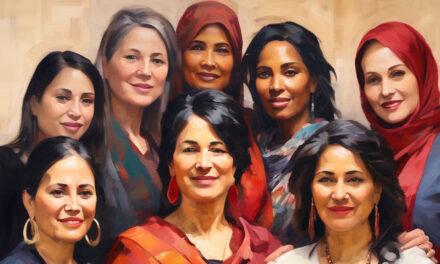With National Inclusion Week (23rd-29th September) underway, business psychologist and leadership development expert Penny Strutton is calling on leaders to make Diversity and Inclusion (D&I) a core part of organisational culture.
Strutton, who has worked with leading global corporations and is the author of The Ultimate Guide to Diversity & Inclusion, believes this year’s theme, “Impact Matters,” provides a timely reminder of the importance of inclusive leadership.
“Every employee holds the potential to make a profound and positive impact,” Strutton explains. “This theme is crucial because it highlights the need for employees to feel valued as individuals and to trust that their ideas and contributions will be respected equally.”
Strutton stresses that creating a diverse and inclusive environment is not solely the responsibility of employees. She additionally notes that effective leadership is essential in championing D&I and embedding the necessary beliefs and behaviours to drive the organisation forward.
Beyond Box-Ticking: The Need for Genuine Inclusion
While many organisations have placed diversity on their agendas, Strutton warns against treating it as a “box-ticking” exercise. She emphasises that businesses should not focus solely on achieving a mix of gender, ethnicity, disability, age, and sexual preference in the workforce.
“Some organisations stop at diversity,” says Strutton. “But if people don’t feel accepted for their individuality, it’s not true inclusion. Inclusion is the goal that all organisations should strive for. It’s about making people feel safe to be themselves, regardless of their background, and ensuring that their contributions are valued.”
She explains that without genuine inclusion, organisations risk stifling employee engagement. When individuals are preoccupied with concealing aspects of their identity due to fear of judgment, their energy is diverted away from their work. This, Strutton points out, has a direct impact on productivity and employee satisfaction.
Creating an Inclusive Environment: Leadership’s Role
Inclusion, according to Strutton, also manifests in everyday actions within the workplace. This could involve inviting employees to share their views, encouraging participation in discussions, and fostering an environment where different perspectives are actively sought and respected.
“An inclusive environment is one where individuals feel empowered to contribute to the organisation’s success,” Strutton notes. “But this can’t happen without strong leadership. Leaders must not only champion diversity and inclusion but also act as authentic role models, helping to establish and reinforce inclusive behaviours across the organisation.”
National Inclusion Week, Strutton suggests, provides an ideal opportunity for leaders to assess their current D&I strategies. Whether organisations are just starting on this journey or refining existing approaches, now is the time to focus on fostering an environment where every employee feels valued and empowered.
As businesses continue to navigate an evolving workplace landscape, championing diversity and inclusion will be key to building resilient, innovative, and engaged teams. For Strutton, the message is clear: inclusion is not a destination but an ongoing commitment that requires leadership, action, and a deep understanding of the benefits it brings to both individuals and the wider organisation.






